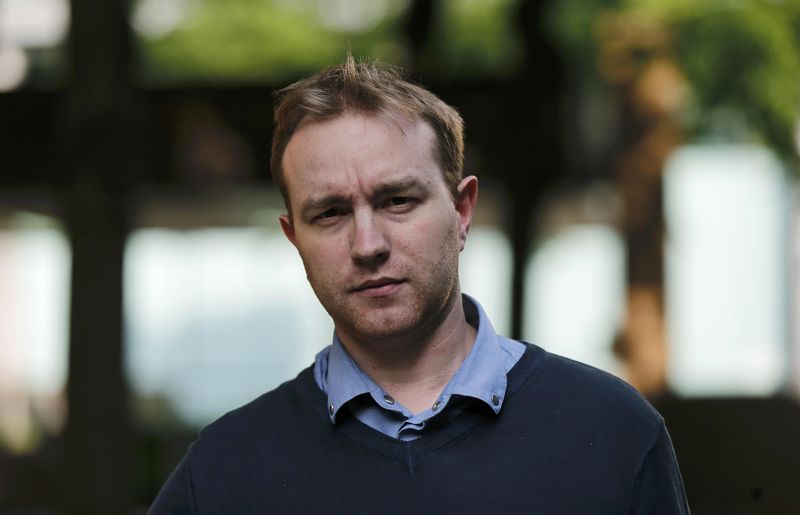By Anjuli Davies
LONDON (Reuters) - The British trade organisation in charge of benchmark interest rates was warned as far back as 2005 that some banks were deliberately distorting their Libor rates for profit, according to evidence given on Monday at the trial of a former trader accused of rate rigging.
During visits to their offices in 2005 and 2006, some banks told the British Bankers' Association (BBA) trade body, which oversaw Libor at the time, that either they or their rivals were quoting higher or lower rates depending on their trading book or loan portfolios, notes from the BBA shown to the court revealed.
The system for setting Libor is under scrutiny at the trial of Tom Hayes, a former yen derivatives trader at UBS (VX:UBSG) and Citigroup (N:C), accused of conspiring with others to rig the rates between 2006 and 2010 to increase his trading profits.
Hayes has pleaded not guilty to eight counts of conspiracy to defraud. His lawyers will set out a detailed defence later in the trial, scheduled to last into August.
The London interbank offered rate or Libor is used to price an estimated $450 trillion of financial contracts worldwide. It is calculated through an "honour system" in which a panel of banks submit their estimated costs of borrowing from each other in different currencies.
BBA notes made in June 2005 during so-called "relationship visits", ahead of yearly panel reviews, say representatives at Credit Suisse (VX:CSGN), for example, had concerns over the quoted rates.
"They accept that different banks have different costs of capital but suspect certain banks may be quoting high or low depending on the shape of their book or loan portfolio at a given point in time," the notes say.
Other banks, such as JPMorgan (N:JPM), were shown to accept that rates were skewed, but were not concerned, according to the notes.
"Notes that GBP (British pound) and USD (U.S. dollar) Libor are higher than the true position, but everyone in the market knows this and prices accordingly. Do not want the BBA to attempt to 'correct' this," JPMorgan representatives told the BBA, the notes said.
INTEGRITY CONCERNS
John Ewan, former Libor manager at the BBA who now works for Thomson Reuters (N:TRI), told the court when cross-examined by Hayes's defence lawyer he did not act on the claims in 2005 because he had only been in the job for two to three weeks and wasn't in a position to "correct" the situation.
The court has already heard evidence that the BBA and the Bank of England had concerns over the integrity of the rate-setting system during the credit crunch of 2007 to 2009 as banks were deliberately making low submissions to allay solvency fears.
In June 2005, other banks also told the BBA that the Bank of Japan and the ministry of finance were putting pressure on Libor rates.
"Apparently the Bank of Japan, the Ministry of Finance 'have made it clear' that they don't want to see negative BBA YEN LIBOR rates being set, even if this would be reflective of reality," Citigroup representatives told the BBA, according to the notes.
Subsequently HSBC (L:HSBA) representatives were quoted in the BBA notes telling the BBA in early 2007: "Very happy with BBA Libor in general. Happy that all the contributors seem to be behaving themselves in terms of not quoting excessively high or low."
The court heard further evidence suggesting officials at the BBA and the Bank of England were concerned about the integrity of the rate-setting system.

In one email exchange between Ewan and a colleague at the BBA, Ewan describes the reaction of the then BBA chief executive Angela Knight regarding allegations that banks were deliberately submitting low Libor rates during the financial crisis. "Angela has asked me to get in the head of treasury for all contributor banks to give them a kicking," wrote Ewan in December 2007.